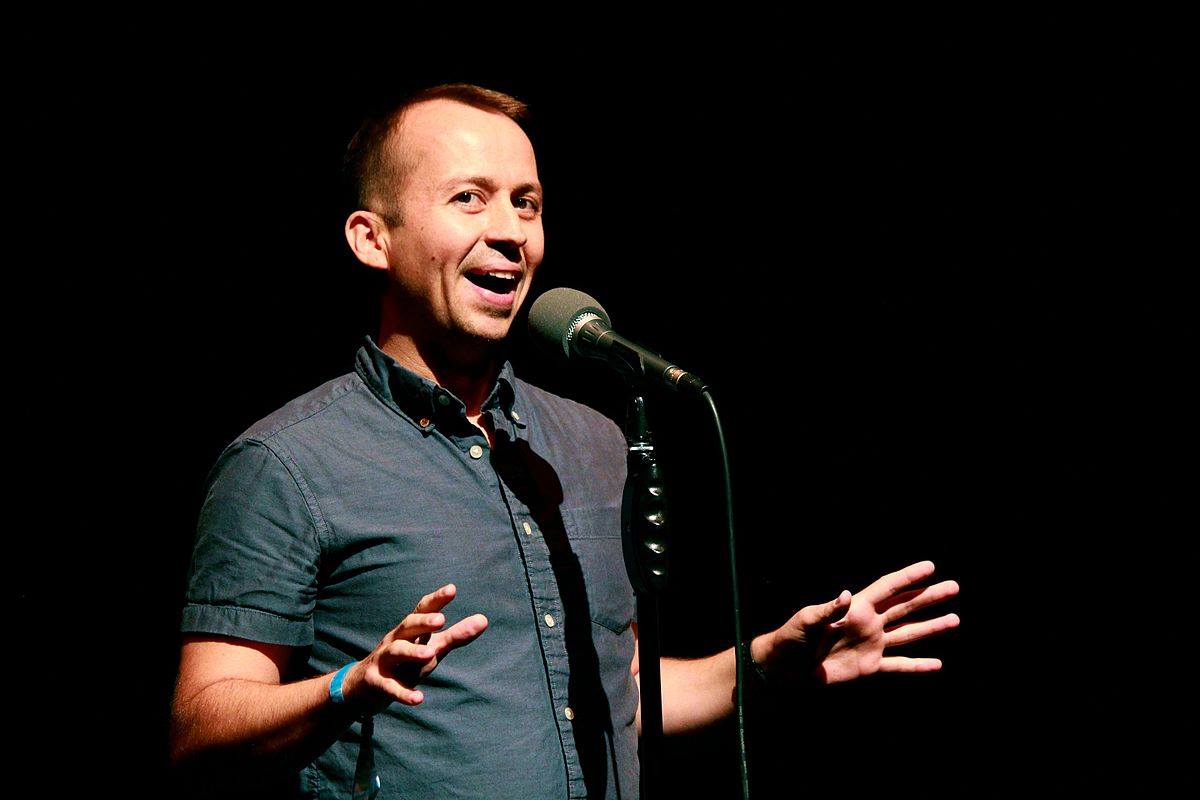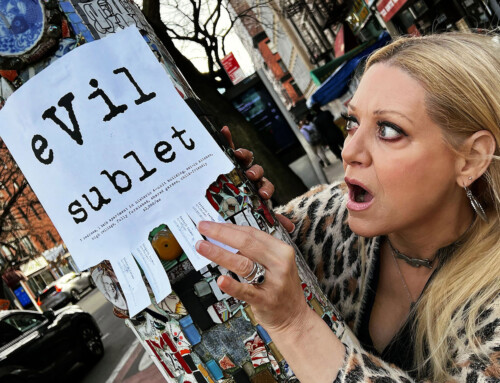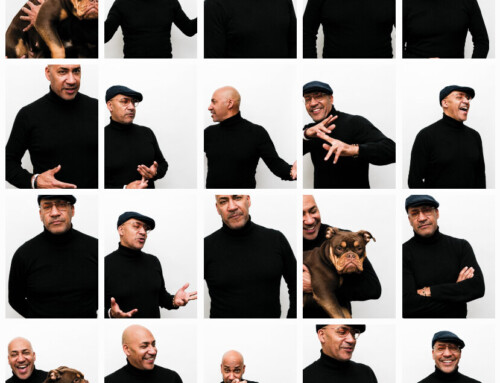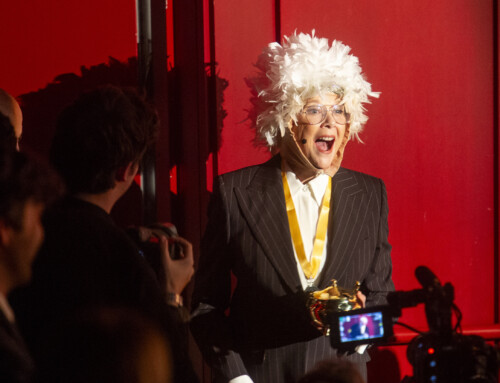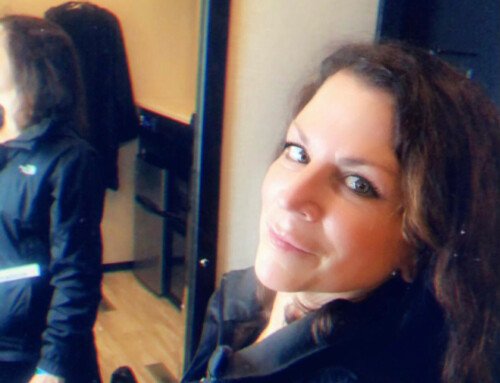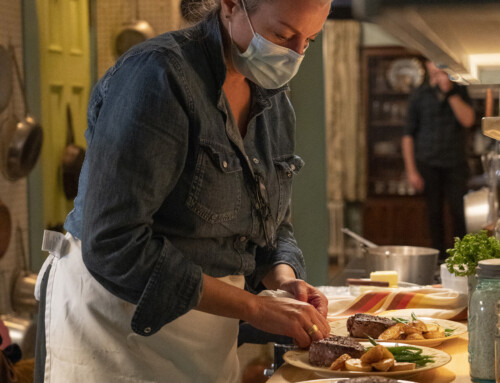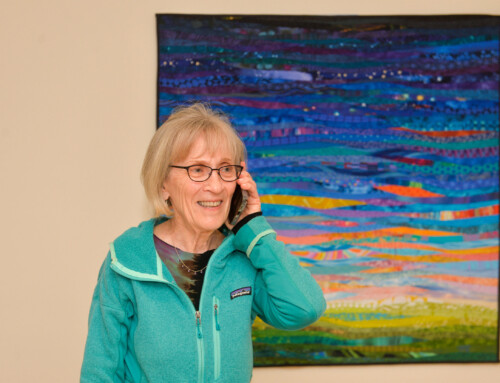This interview took place with The Moth Master David Crabb on April 1, 2016.
Nina: How did you start out with the Moth series?
David: I attended my first slam 5 years ago and won! I was hooked immediately and started telling around town, in addition to starting my own series “Ask Me Stories” with acclaimed storyteller & visual artist Cammi Climaco. The Moth asked me to fill in a few years ago and brought me on to host at the monthly West Village slam at Bitter End in NYC. I started touring with them as a host about two years ago.
Nina: When did you try your first comedy gig?
David: Hmmm . . . “comedy gig.” Honestly, I don’t really do stand-up in the traditional “stand-up” context. I enjoy good stand-up, but I like the structure of hosting so much more. I think this has to do with the improv element of riffing on a story, and also my obsession with stories as a memoirist and teacher of storytelling. Hosting is the best job because it combines so many of my interests perfectly. And I feel like I’m part of an onstage family as I’m doing it.
Nina: How did you develop storytelling talents; do you think this is something you were born to do, natural talent?
David: My parents are both storytellers in their own way, one from central Texas and the other from Newfoundland Canada, two cultures with rich storytelling histories. Seriously, you just can’t get these folks to shut up! I kid… but only a little. I’ve been interested in books, film, TV and comedy since I was a little boy. I’ve always loved narrative arts and wanted to write, direct or act at different points in my life. In spite of the nurturing performative environment I grew up in, I do think people who aren’t natural storytellers can become great ones, and I’ve seen it happen before with my students. I’ve also seen some very talented directors at The Moth embolden otherwise shy/introverted people into telling incredible stories in front of thousands of people.
Nina: Did you inherit your humor from your parents or anyone in your family? Were you always a humorous person?
David: I’ve been playing characters and telling stories with friends and family since I was a little kid. Trying to make my mom laugh until she peed her pants was a favorite game of mine, much to my mother’s eventual chagrin. But I’ve always been prone to depression as well and was a moody goth kid throughout high school. I listen to a lot of sad music and watch a lot of troubling films and enjoy a lot of deeply depressing television and literature. So storytelling really allows for that contrast, which I love. The hosting aspect doesn’t allow for as much shade as light, and that’s not a host’s job when he or she is onstage keeping the mood up. But my storytelling does tend towards that dark/light contrast. And those types of salty/sweet stories are typically my favorite. But again, I love that hosting lets me focus on the “jester/ringleader” aspect of being with an audience.
Nina: What do you love about your job as a storyteller and as a host?
David: Like I just said above, they are quite different. For me, hosting is such a beautiful job because I feel like I’m part of a family (the tellers) who are all meeting our giant extended family (the audience). We don’t have a lot of time together, but we want to maximize the love, laughter, joy and feeling of this massive family reunion. So in that sense, I try to think of the audience as old friends the moment I walk onstage; to will myself into feeling a kind of familiarity with them. It’s very important to me that the first 3–5 minutes go a certain way, because I want them all to feel like we have a rapport by the time I introduce that first teller. I do this for the teller as much as the audience. And when that story is over I want to clean the slate in a way that honors the last teller but also cleanses the palette, especially if the audience is about to get one of those “and now for something completely different” shifts in tone. The job is to make the room feel safe for the audience, and then the teller, and then the audience again, and then the teller again, and so on and so on. Hosting is about supporting really. It’s a rollercoaster.
If hosting is thinking in a “macro” manner about the show, then telling a story is “micro.” When I’m telling a story, the rollercoaster I need to worry about happens only in the ten minutes I’m onstage. But I also get to dig deeper and don’t need to worry so much about keeping things light. I’m also much more tied to a prepared outline. Although there’s a certain security in that, I increasingly find myself missing the unpredictability of hosting, where anything can happen, especially in a slam/open mic scenario. Trying to infuse my storytelling with spontaneity and working off the other people in the room is something I’ve been thinking about a lot when building my newer longford solo shows. How can I make storytelling feel more like hosting so I don’t get bored?
Nina: What do you dislike about your work, if there’s anything?
David: Not much. I only wish there was more of it! I love the travel and seeing new places. And oftentimes I leave a Moth Main Stage show feeling like I have a new family in the group of tellers, although I’ve only known them a few days. When I travel for my book “Bad Kid”, it’s a more isolated performing/reading experience than my work with The Moth, but I love it as well.
Nina: Where did you go to high school growing up? What was that like for you?
David: Two high schools in Texas, San Antonio and then Seguin. My book is all about these years and the transition from being a goth/freak/weirdo in a big Texas city and then a small Texas town. It was wonderful and harrowing and hilarious and I wouldn’t take back any of it.
Nina: And college? What was your major?
David: Southwest Texas State University BFA photography. Cranbrook Academy of Art MFA photo/video/performance.
Nina: Who was your best role model growing up?
David: Too many to count. Several educators in grade school and grad school were really influencing. But my art professor Eric Weller in undergrad left a real imprint on me. He’s the reason, post-college, that I got into grad school. I didn’t know I wanted more from life until he called me one afternoon post graduation in the garage bedroom of my parents’ house and said, “What the hell are you doing? You’re talented and need to go places and see things! There’s a spot in an MFA program in Michigan and I forwarded your stuff without telling you.” I got accepted after a phone interview and had under two weeks to pack up my life and leave Texas for the first time. We lost him last year and still think of him every day. He’s my hero.
My mom is pretty cool too though 😉
Nina: What were your favorite shows growing up (or movies)?
David: E.T., Bullets over Broadway, After Hours, Seven, ALL of the Alien movies, EVERY horror movie (Nightmare on Elm Street, Halloween, Friday the 13th), Absolutely Fabulous, The Meaning of Life, Twin Peaks, Seinfeld, 120 Minutes
Nina: What religion were you raised, if any? Has religion or spirituality impacted your life?
David: Catholic, but only loosely. My mom was raised Catholic and worked in the church until only recently. But she’s one of those “coexist” bumper sticker Catholic moms. She’s deeply liberal and supportive of any person’s faith as long as they don’t use it to inflict pain on others. I would say that I’ve always felt very open to “magic” in life. There are things that have happened to me that feel almost unexplainable or mystical in some way. And although I’m open to those feelings, I’ve never felt the need to apply any specific dogma or faith to them. I like grey areas. I’m comfortable in them.
Nina: What are some of your favorite highlights about your work?
David: Probably hosting at the Sydney Opera House. I don’t know how you top that. But performing at BAM is close. And introducing Normal Lear at a show in LA last year was pretty amazing. There are loads of personal highlights more related to my teaching, but most of them are small moments that concern my relationship with a teller and my joy in seeing them be their truest self onstage after crafting their story.
Nina: What are your favorite stories? Do you repeat your stories when you travel, and change your story themes often? How does that work for you?
David: I have a few back-pocket stories I usually tell after intermission; big, loud, clownishly funny stories I tell to get the energy back up. This one about a Russian bathhouse I tell a lot. I never get bored of it and generally find new bits with each telling. For my openings, I try to tell something fresh and related to the place that I’m in. I might tie it to an older anecdote that gets a great response, but I always want to keep my eyes and ears open during my first 24 hours in a new city, so that I can connect with people about the place we’re all in.
Nina: Are all your stories humorous?
David: When I host, yes. When I tell, no.
Nina: How do you come up with stories? Are they all based on your life experiences on a daily basis? Or do you select stories based on intermittent events in your life?
David: A mix. Sometimes I’ll talk about a thing immediately after it’s happened. There have been a few times when I’ve known something is going to be a story before the experience is actually over. This happened a few year ago with my grandmother, who suffers from Alzheimer’s. It’s strange once you’ve been telling and writing nonfiction stories this long, because it can feel like you have two brains working: a present one actively experiencing all the pain, joy, and anger at hand, and another writer’s brain that is already starting to do the work of structuring, editing and breaking down the moment you’re currently in. I try to be aware of that and don’t always like when it happens, as I want to be in the moment as a human first, and an artist second.
Other times, an event that happened 20 years ago will float up to the surface of my memory because of a trigger. And I’ll think, “Oh! I can make that into a story!” Also, some smaller anecdotes finally become stories because a current experience or stimuli eventually give them a context that I’d needed to turn them into something bigger.
Nina: What are your hopes and goals for the next year?
David: I want to finish my second memoir and maybe a novel. I’ve written a pilot for my first memoir, “Bad Kid” and would love to see that developed. I’d also like to perform longform storytelling in a new, more spontaneous and interactive way. I’ve got some ideas cooking on that. My second solo show, “$1800”, has only been performed a half dozen times. So I’d like to get that back up and running. I’ve just moved to LA after establishing myself in New York for 16 years. So many of my goals are merely about getting in front of new audiences on the west coast.
Nina: And how do you see yourself ten years from now?
David: Old. Tired. Bald.
Kidding… Tanned. Muscular. Bald.
Nina: Do you like to travel?
David: Love it. I get so many great anecdotes out of air travel that I’m thinking about developing a solo piece about it. It’s a beautiful, awful, magical, demeaning thing. And I love when something is all the “things.”
Nina: Do you ever run out of stories before hosting a show?
David: Yeah. But the audience and place can give even the most tired story a whole new energy and meaning. I just have to remind myself that it’s new for them, and that makes it feel new for me.
Nina: What should the audience know about David Crabb, what would you like us to know most about you?
David: Oh jeez, that’s what I write full-length books for 🙂 Well, I hate the concept of shame. I think shame is the number one killer of hope, love and connection. I feel bad for people who are ashamed and deal with it by lying or hiding or shutting down. I think one of the reasons that storytelling is such a passion of mine is that it champions this idea, that shame is bad. Because of my work I sometimes take for granted how hard it is for some people to just SAY THE THING THEY NEED TO SAY. I really do think it can set you free.
Nina: How best would you describe yourself?
David: Lover of dogs. Happy in the sun. Addicted to caffeine. Never shuts up.
Nina: Besides highlights in your job and life, are there challenges you want to share?
David: My health is an issue and my last show, “$1800”, was primarily about that. I have Crohn’s Disease and other ailments that come along with any autoimmune disease; arthritis, joint issues, depression, fatigue. I am feeling much better these last couple years. But when I was very sick, I tried to pretend things were fine for about a year. And I swear, in retrospect, it only made me sicker. I felt ashamed of my frail body and poor health at such a young age. Pretending never helps. So yeah, say the thing you need to say. Ask for help when you need to.
Nina: Anything you would like to add about your work and life?
David: My dog and my husband and The Moth are all wonderful and I’m lucky to have such a “trinity of awesome” in my life. I’m also really pleased that you forwarded me these wonderful questions. Thank you.
